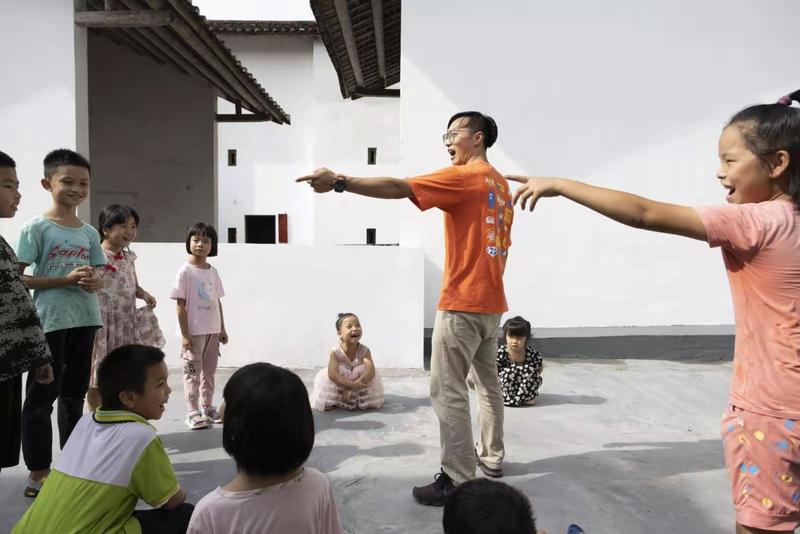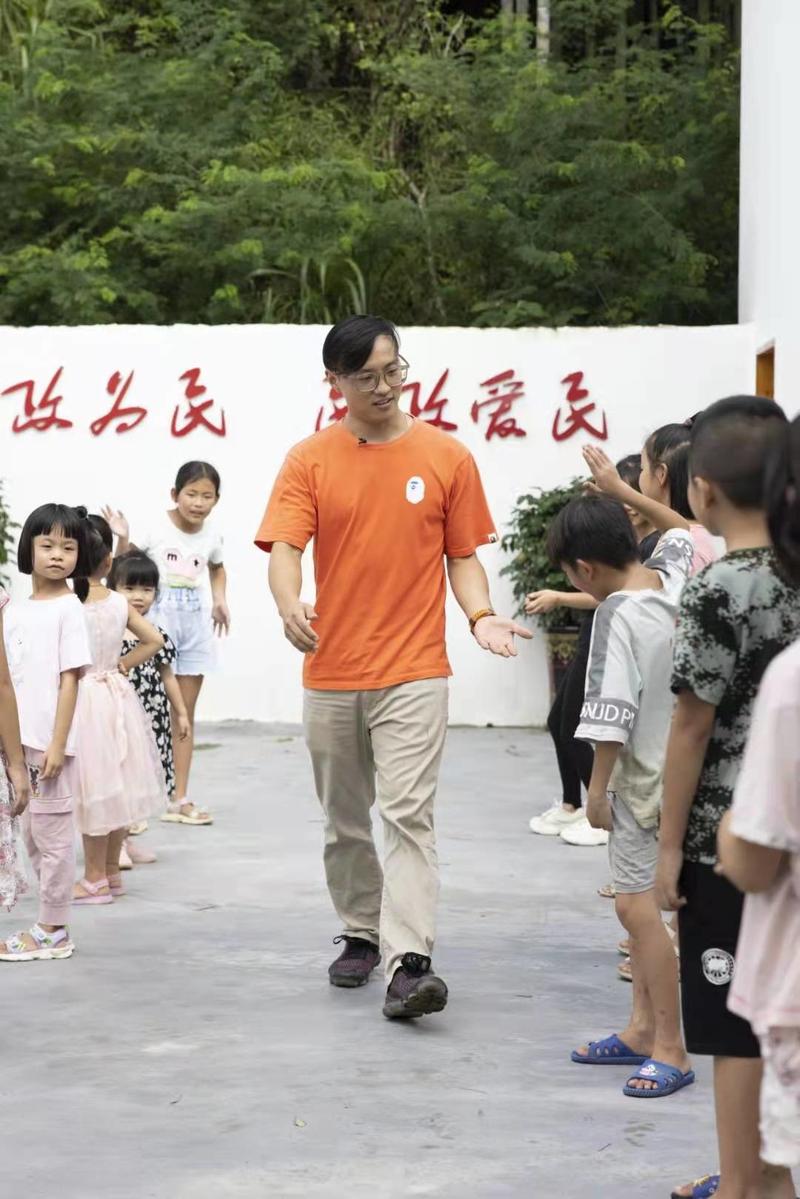 Tai Yuhui teaches street dance to abandoned children at his center in Conghua, Guangdong province.(PHOTO PROVIDED TO CHINA DAILY)
Tai Yuhui teaches street dance to abandoned children at his center in Conghua, Guangdong province.(PHOTO PROVIDED TO CHINA DAILY)
The opportunities presented by the mainland, particularly the Greater Bay Area, have drawn another Hong Kong Special Administrative Region resident away.
Tai Yuhui moved from Guangdong to Hong Kong when he was just 1. Now 29, and in search of better opportunities, Tai has relocated to Conghua, in southern Guangdong, where he has set up a workshop to teach children street dancing.
He quit his job in Hong Kong in May 2020. "I used to teach street dancing at a government-run society there," Tai said. "I'd been toying with the idea of leaving Hong Kong for some time now. It's very depressing in Hong Kong, where we worked under great pressure and at poor incomes."
Sometime in 2019, he was visiting Conghua and was struck by the natural beauty of its landscape. "It was the kind of place I'd wanted to work in," he said.
That is when he decided to make the move. He also sees a better future for himself in the Greater Bay Area. "I wanted a new living and working environment before I turned 30. The mainland, with its rapid phase of development, offers the hope of a better future," he said.
A personal reason
There is a more important and personal reason why he chose to relocate to Conghua. "I found many children here, who have been left behind by their parents," he said. In many parts of China, migrant workers leave their children with the grandparents when they migrate to other cities in search of work.
"Being cut off from their parents, these kids grow up to be introverts and cannot handle their relationship with their parents well," Tai said. "I want to bring some happiness in their lives by teaching them street dancing."
Tai should know. Growing up in Hong Kong, he himself drew inspiration from this form of dance once. "I had a troubled relationship with my parents when I was 13. Those were difficult times. And then I discovered street dance, which had a calming effect on me. It turned me into a positive and upbeat person," he said.
He first learned street dancing by watching online videos.
Later, with some help from social workers in Hong Kong, he joined a government-run art center to learn the dance better.
 Tai with his students. (PHOTO PROVIDED TO CHINA DAILY)
Tai with his students. (PHOTO PROVIDED TO CHINA DAILY)
Rebellious children need guidance or they can go astray, he said. Tai recalls a 12-year-old in Hong Kong who came from a troubled home, got into bad company and got addicted to drugs. The boy was persuaded to join street dancing classes and go for counseling, which seem to have helped him.
"That's why I wanted to teach street dancing to these children here and also give them some psychological counseling. The children will find an outlet for their emotions in me and I might be able to help bridge the gap between them and their parents."
Starting the workshop was not easy. Though he got some help from the government in setting up the workshop, he encountered some problems too. "I went to Guangzhou in May last year to make preparations for setting up the workshop, but the COVID-19 outbreak upset everything," he said. "I invested roughly 70,000 yuan ($10,840) for setting up the workshop, which came up in July last year, but because of the pandemic I had no students or income for months thereafter. Thankfully, I didn't give up. The situation is getting better now."
He now teaches the dance to around 30 students and gives free lessons to those who cannot afford it. He also visits some backwater areas in the province to teach street dance to children there.
Rewarding experience
"Street dance is trending and attracting young people everywhere," Tai said. So much that leaving his earlier job has turned out to be a rewarding experience for him. "I've greater satisfaction now, compared with my job in Hong Kong. Leaving the place where I lived for nearly three decades has made a big difference."
He has more plans though. His long-term ambition is to take the street dance culture to more places in the mainland.
He said he believes that stronger youths make a stronger country, and that the education and art training for children in the countryside can be improved upon.
"I'm now teaching street dance in just one village, and I hope to open such classes in 50 or even 100 villages in the next five years to make this cool art form available to the abandoned children in the backwaters," he said. "It will be of greater help if the local government can provide more policy-like assistance to such startups."
He said he wants to make a mark in life in the mainland through his hard work, something that will encourage more young people from the Hong Kong and Macao special administrative regions to seek jobs or start their own business in the mainland.


